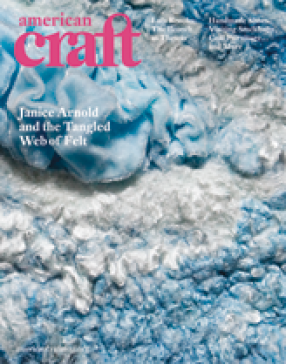In a century of providing ceramics instruction, Greenwich House Pottery (GHP), located on a picturesque street in New York City’s historic Greenwich Village neighborhood, evolved from a modest program aimed at acculturating poor immigrants and providing training in a marketable skill to a nationally recognized workplace and showcase for contemporary ceramics. Begun in 1909 as a program of a settlement house founded in 1902, the pottery, under its first director, Maude Robinson (from 1911 to 1941), an artist with a Newcomb College background, attracted patronage as well as students from the city’s social elite, and accepted commissions and sold works through a retail shop. Under the leadership of Jane Hartsook (1945-82), GHP moved in 1948 to its current three-story brick building at 16 Jones Street and broadened its reach to attract both postwar youth and more committed artists. On her watch, a who’s who of ceramists made their way to the pottery to teach, lecture or give workshops: Peter Voulkos, Tony Hepburn, Warren MacKenzie, Margaret Israel, Rudy Autio, Jun Kaneko, to name a few. In 1970 Hartsook opened the upstairs gallery now bearing her name, which shows established and emerging artists. The ground floor shop has featured functional work.
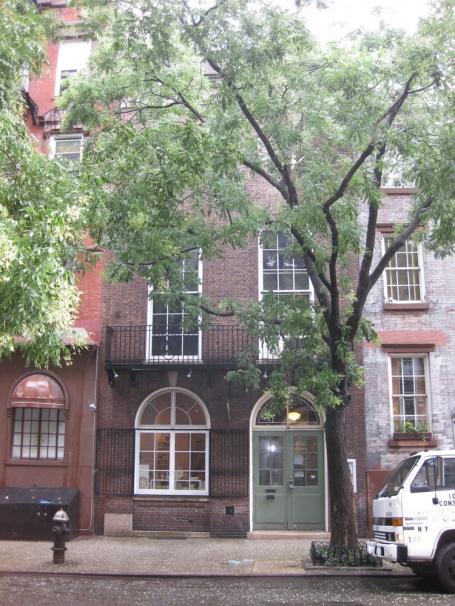
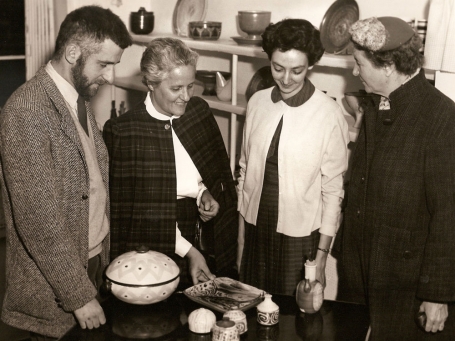
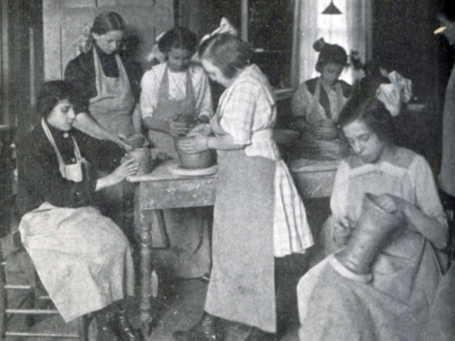
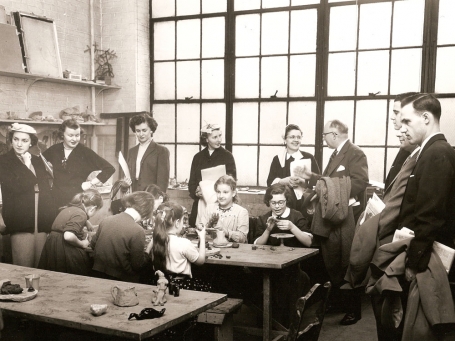
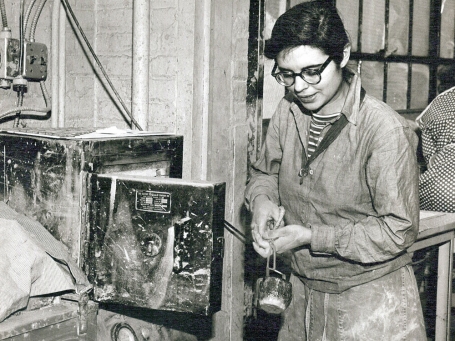
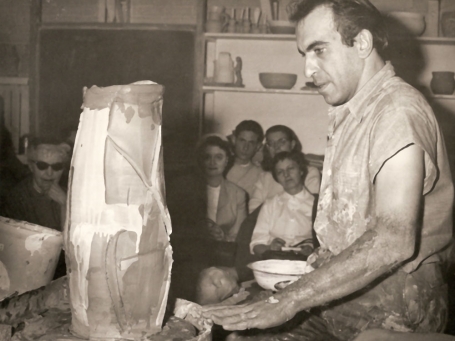
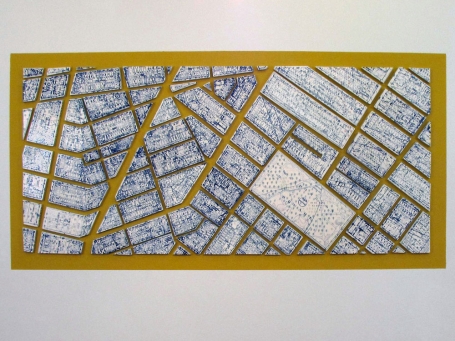
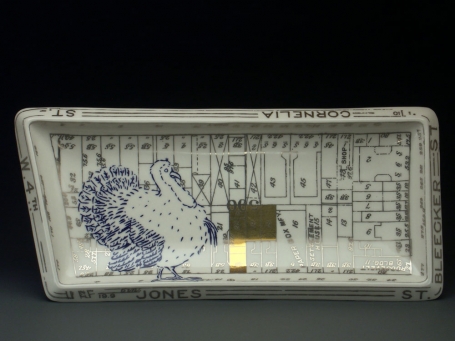
Open all year, the well-equipped facility offers adult classes from basic hand-building and wheel work to more advanced techniques. GHP launched a series of celebratory exhibitions in September with “Who Lives in Greenwich Village?” consisting of a unique ceramic tile map of Greenwich Village with the pottery building at the center, created by Andy Brayman, a former studio manager, and Ayumi Horie. The map has two historic reference points: 1909, the pottery’s founding year, and 1609, the year of Henry Hudson’s voyage, represented by animals and plants that thrived in early Manhattan. Other exhibitions are solo shows of Kathy Erteman and Anat Shiftan. Lectures on historical subjects are also scheduled and, in April, a panel discussion on studio pottery with Glenn Adamson, Howard Risatti and others.
Musing on the common thread between the activities of its origins and today’s community of GHP artists, director Sarah Archer says, “My sense is that although the mission has shifted quite drastically, the essential role of forging the bonds of community, values and shared interests through the collective process of making something has not changed since our founding days.”

